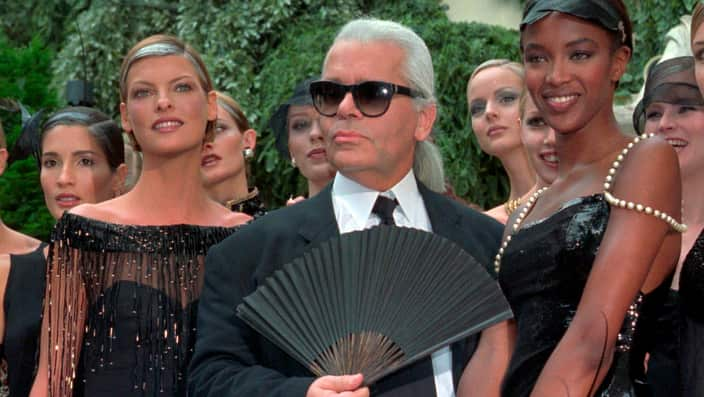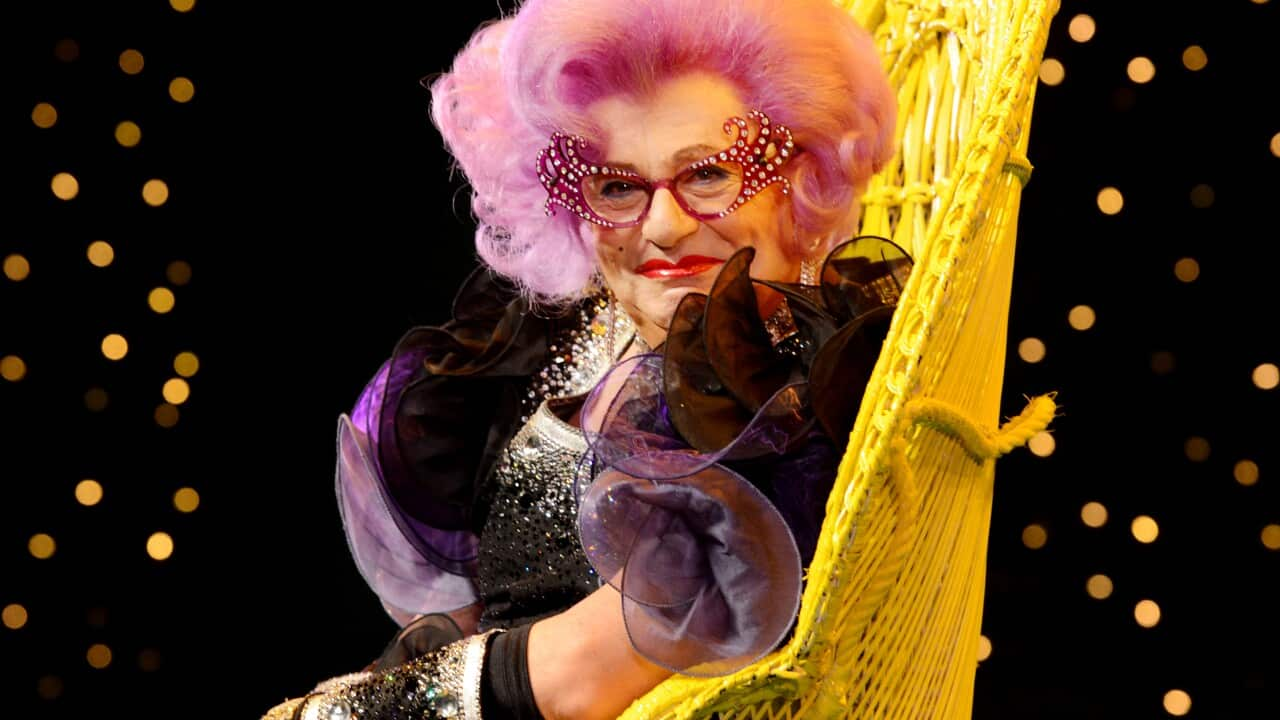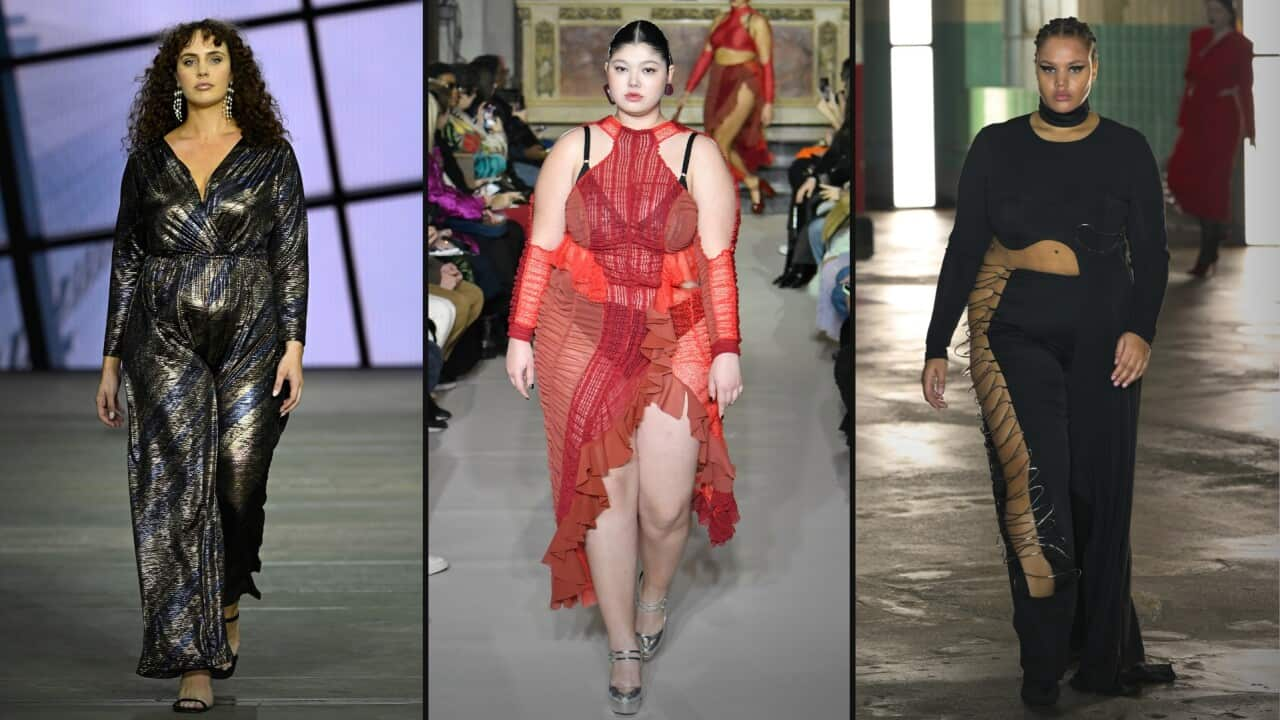Key Points
- The Met Gala is held on the first Monday in May each year.
- The theme of this year's events and exhbition is 'Karl Lagerfeld: A Line of Beauty'.
- The late fashion designer is best known for his decades-long role as creative director of Chanel.
The first Monday in May has long been synonymous with the star-studded Met Gala.
Here's what you need to know about "fashion's biggest night out" and why some say the late haute couture designer was problematic.
What is the Met Gala?
is an annual event held at New York City's Metropolitan Museum of Art to raise money for its Costume Institute.
It also serves as a celebration for the Costume Institute's spring exhibition, which this year is 'Karl Lagerfeld: A Line of Beauty'.
The dress code for the gala is "in honour of Karl".

Last year's Met Gala theme was 'In America: An Anthology of Fashion'. Source: AP / Evan Agostini
Tickets for the prestigious event have increased from US$30,000 ($45,399) to US$50,000 ($75,665), according to the New York Post.
Last year's Met Gala raised a record US$17.4 million ($26.3 million).
Who was Karl Lagerfeld and why is he considered problematic?
Lagerfeld was best known as the creative director of French fashion house Chanel — a position he held from 1983 until his death in 2019.
The Metropolitan Museum of Art's director Max Hollein described him as "one of the most captivating, prolific, and recognisable forces in fashion and culture" who was known "as much for his extraordinary designs and tireless creative output as for his legendary persona".
"This immersive exhibition will unpack his singular artistic practice, inviting the public to experience an essential part of Lagerfeld's boundless imagination and passion for innovation," he said in a statement.

Karl Lagerfeld with models Linda Evangelista (left), and Naomi Campbell (right). Source: AAP
"He offended people right and left, making as much of an art out of the cutting aside as the perfectly cut double-face gown," New York Times fashion critic Vanessa Friedman wrote after his death.
"He judged and knew he would be judged himself, but he didn't care. Rather, he embraced it."
When the 2023 Met Gala theme was announced last year, British actor, presenter, and activist Jameela Jamil was among those to condemn it.
"This man... was indeed, supremely talented, but used his platform in such a distinctly hateful way, mostly towards women, so repeatedly and up until the last years of his life, showing no remorse, offering no atonement, no apology, no help to groups he attacked... there was no explanation for his cruel outbursts," she wrote on Instagram.
"Why is THIS who we celebrate when there are so many AMAZING designers out there who aren't bigoted white men? What happened to everyone's principles and 'advocacy.' You don't get to stand for justice in these areas, and then attend the celebration of someone who reveled in his own public disdain for marginalised people.
"Sorry, but no. This isn't the 90s. We didn't fight all this shit just to throw it all away because some white guy made some pretty clothes for people's skinny faves... come on now."
and would frequently make disparaging comments about women who were above a sample size, often in defence of fashion’s obsession with thinness.
Both supermodel Heidi Klum and singer Adele became targets of Lagerfeld's with him describing them as "too heavy" and "a little too fat", respectively.
"No one wants to see curvy women ," he told German magazine Focus in 2009.
Lagerfeld disapproved of , saying in an interview with international fashion magazine Numéro in 2018 that he was "fed up with it".
"I read somewhere that now you must ask a model if she is comfortable with posing. It's simply too much, from now on, as a designer, you can't do anything," he said.
"It's unbelievable. If you don't want your pants pulled about, don't become a model! Join a nunnery, there'll always be a place for you in the convent. They're recruiting even!"
In 2017, he made controversial comments .
Despite being gay, he also opposed same-sex marriage.
"I'm against it for a very simple reason: In the '60s they all said we had the right to the difference. And now, suddenly, they want a bourgeois life," he told Vice in 2010.
"For me it's difficult to imagine — one of the papas at work and the other at home with the baby. How would that be for the baby? I don't know. I see more lesbians married with babies than I see boys married with babies. And I also believe more in the relationship between mother and child than in that between father and child."












